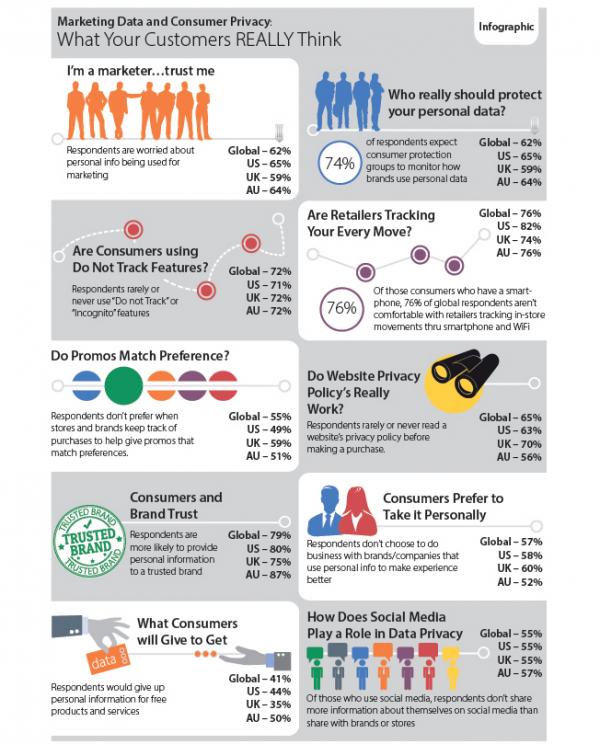Put plainly, big data is a term that describes huge data sets produced from a variety of digital sources like social media. It’s comprised of structured, semi-structured, and unstructured data that cannot be handled by conventional databases or software. Instead, all of it is sent through specific analytical programs to make sense of it all and make predictions.
ABI Research believes that big data spending will reach $114 billion globally in 2018. An estimate that was echoed earlier this year in a Duke University report, reported on by Adweek, which indicates that marketing data budgets will double, while mobile ad spending will triple over the next three years.
Big data is big business, and here are 8 key stats to keep in mind:
- Mobile advertising currently takes up 3.2% of marketing budgets, and is likely to almost triple to 9% over the next three years, according to the Duke University report.
- The report also indicates that traditional advertising budgets are expected to fall 1.1% by early 2016.
- Social media advertising currently makes up 9.9% of spending, and a jump to 22.4% is predicted over the next five years.
- Marketing budgets are expected to rise by 8.7% in 2016, which will make it the biggest growth since 2012.
- A Q1 2013 survey from CMO Council and SAS found that 6 out of 10 marketers see big data as both an obstacle and opportunity (reported by eMarketer).
- That same report reveals that 15% believe it is full of opportunity, and that they had all the tools they needed.
- A KPMG survey, also reported by eMarketer, found that 2 out of 5 managers believe that buy-in was important, but only 25% of them were putting big data related insights into practice.
The biggest obstacle in dealing with big data is that everyone agrees that it’s powerful, but at the same time, can be overwhelming. Furthermore, customers are becoming increasingly wary of privacy concerns. A 2014 study from the content analytics firm SDL (via Adweek) showed that almost two-thirds of customers in the U.S. and around the world worry about marketers using their personal information. A fear that surely contributed to how the E.U. court ended Safe Harbor earlier this month, a compact that had streamlined data flow across 4,000 companies including technology firms and ecommerce.
The chart below, published by SDL, shows that 65 percent of respondents in the U.S. (62% globally) worry about their personal information being used in marketing. Yet, 71% (72% globally) rarely or never use “Do not Track” or “Incognitio” features on their devices. Furthermore, 58% of U.S. respondents (57% globally) said that they wouldn’t do business with brands or companies that want to use personal information for a better experience.

However, a little trust goes a long way. 80 percent said that they’d be willing to share information with trusted brands, so long as they’re transparent about how they collect data, what’s it’s used for, and what they get out of it.

